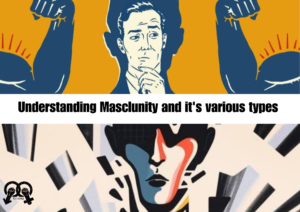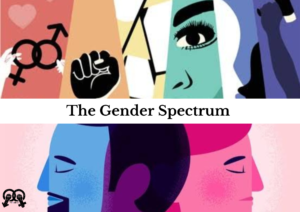Introduction
The relationship between nature and women is the focus of the social movement and philosophy known as ‘Eco-feminism’. It is a social movement focused on nature preservation that is led by indigenous and democratic movements, particularly by activists who identify as women of colour (Rai, 2022). Theoretically, it explores the connections between the exploitation of women and the supremacy of nature.

Credits: Pinterest
The phrase ‘eco-feminism’ was first introduced by French feminist Françoise d’Eaubonne in her book Féminisme ou la Mort (Feminism or Death, 1974). Since then, the phrase has gained significant light, particularly among young women and is considered as a major feminist theory today. Academic feminists and active environmentalists from around the world are now a part of the international effort known as ecofeminism.
However, as times have changed, this feminist ideology has embraced women and nature at a fundamental level where issues like reproductive rights and the purpose of life itself are discussed. Hence, The purpose of this article is to discuss the relationship between women and the environment from an ecofeminist perspective, to debate reproductive rights, and to emphasize its present relevance.
The Origin Story of Ecofeminism
Warren (2001) explains that in the past, cultural feminism, also known as “radical” or “spiritual” feminism, was the earliest branch of ecofeminism. Cultural feminism, which emerged in the early 1970s, reasserts women’s connections to nature as freeing and powerful manifestations of women’s capacity to take care of the environment. Hence, Women are biologically and intrinsically linked to nature through reproduction, according to certain cultural ecofeminists, who claim that this makes them “more connected to nature” than men.
Puleo (2017) emphasises that the feminist principle of motherhood as a free and personal decision, the stress on the identity of the woman as a mother connected to the Earth that is found in some kinds of ecofeminism can cause a regression. Nonetheless, promoting sexual and reproductive rights is a necessary part of the fight for equality and self-empowerment. Reproductive rights refer to the constitutionally protected freedoms of contraception, abortion, in vitro fertilization, reproductive health, and access to knowledge about one’s reproductive system (Schurr, Carolin, et al. 2020). Reproductive rights, in other words, ensure that people have the freedom to choose whether or not their bodies have the capacity and will to procreate (Schurr, Carolin, et al. 2020).
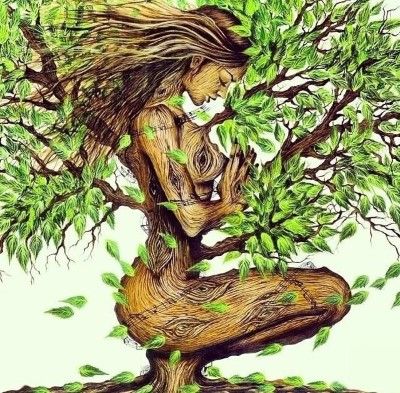
Credits: Pinterest
Furthermore, It is crucial to keep in mind that Françoise d’Eaubonne’s 1974 paper, published as the first text to use the term “ecofeminism,” made the case that patriarchal attitudes toward women’s right to control their own bodies were to blame for the planet’s overpopulation, a problem that concerned ecologists. However, the point to note here is that overpopulation is NOT the top priority concern of contemporary eco-feminists, but the “Patriarchal attitude to control women’s bodies” surely and undoubtedly is.
The Ecofeminist Perspective: Human Rights and the Reversal of Roe v Wade
One of the major setbacks that shook almost every school of thought not just the feminist school of thought was The United States of America’s Supreme Court’s reversal of the Roe v. Wade decision in June of 2022. In a nutshell, Since Roe v. Wade was overturned, there is NO longer a federal ‘right’ for women to have an abortion and each state is now free to establish its own abortion regulations (Dhara, 2022). Yet, upon reflection, the decision simply reinforced what history has shown and what feminists fear: women’s rights and opportunities have always been subject to controls, fluctuations, and specious rationales (Kitch, 2023).
As a result, there is a vast range in the accessibility of abortion services for women across the United States of America, a state which is held high in regards to women and gender equality. Such incidents highlight the necessity of an eco-feminist perspective on reproductive rights and the interconnectedness of all life. Therefore, It will not be inaccurate to Incorporate Gaard’s (2010) point of view, which offers an eco-feminist and environmental justice perspective on the limitations of “choice” rhetoric in the politics of women’s reproductive self-determination.
Therefore, the lack of this choice is not just unsafe for women, but this author considers it to be a direct violation of basic human rights. Even though no universal declaration explicitly endorses the same, many recognize women’s reproductive rights, which ultimately fall under the umbrella of “choice” and away from patriarchal beliefs that eco-feminism wants to shed light on.
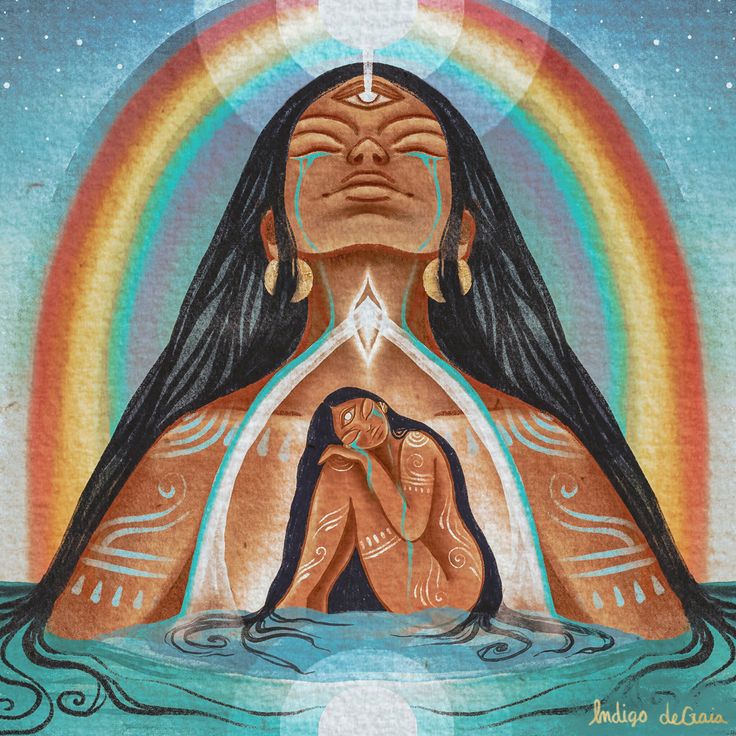
Credits: Pinterest
Like the Convention on the Elimination of All Forms of Discrimination Against Women (CEDAW), which was ratified by the UN General Assembly in 1979 and is sometimes referred to as an international declaration of women’s rights. It outlines a strategy for taking action to end discrimination against women and specifies what constitutes it. A prologue and thirty articles make up this work. One of which is:
Article 12: appropriate measures to eliminate discrimination against women in the field of health care to ensure, on a basis of equality of men and women, access to health care services, including those related to family planning.
Surprisingly, the U.S. is not among the UN member states who are a party member of this historic convention.
In a statement that came from UN Women (2022), it was implicitly mentioned that women must have access to information, education, and services in order to exercise their human rights and make crucial decisions, including choosing how many children to have and how far apart to space them out. When access to safe and legal abortion is restricted, women are compelled to choose less safe techniques, which too often have detrimental or devastating effects—especially for women who are marginalized or affected by poverty, such as minority women.
The decisions such as the reversal of Roe v. Wade, violate the fundamental rights of millions of American women by denying them such autonomy, and choice which eco-feminism focuses on, especially those from disadvantaged backgrounds and members of racial and ethnic minorities (United Nations, 2022).
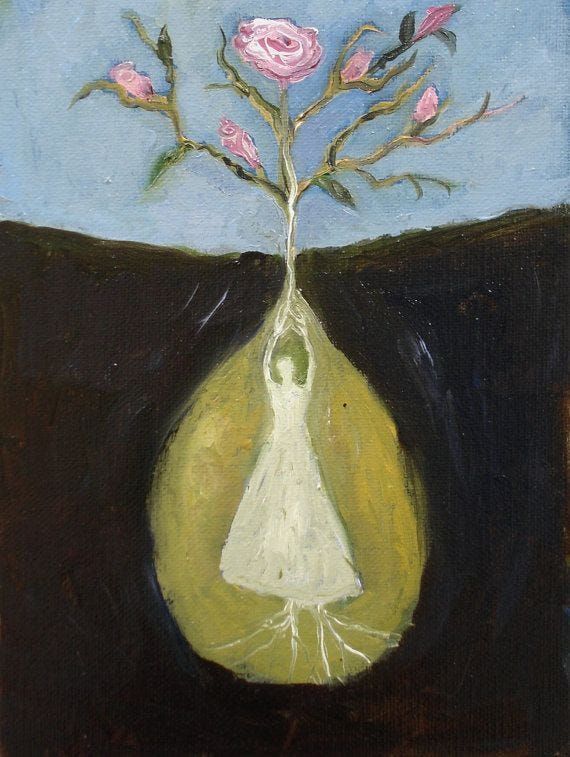
Credits: Pinterest
Nonetheless, it is crucial to note that similar to all feminist movements, eco-feminism also aims to see men and women develop in society equally and harmoniously (Wanjin and Kim, 2022). But, its specific direction of co-relating women and nature is explained by Wanjin and Kim (2022) in the words of Françoise d’Eaubonne, who demonstrated how the exploitation of nature and the suffocation of women by patriarchy were intertwined: the treatment they received, the position they were given, how their work and output were made invisible, and, so on (Colle, 2019). Despite, this ecofeminist’s direction, That doesn’t imply that all men take advantage of the environment or women; rather, it highlights how (primarily) Western ideas of masculinity frequently result in a “masculinist insensitivity to the bonds between women and ecogenic environments” (Kitch, 2003).
In light of this, Kitch (2003) argues that the overturning of Roe v. Wade distils patriarchal empire to the regulation of pregnancy and childbirth on the presumption that women perform these tasks and are thus legitimately entitled to institutionalized control.
Conclusion
Finally, The idea of ecofeminism can be a crucial tool for addressing connections between reproductive politics and inequalities. This hybrid term connects environmental risks to exaggerated and stigmatized perceptions of masculinity and femininity (Gaard, 2017).
Hence, this school of thought believes that as gender and family systems are socially constructed, they may be transformed to guarantee equality and provide a foundation for women’s reproductive self-determination based on women’s Choice” (Correa and Reichmann, 1994, 2). The Roe v. Wade decision, which is repeatedly referenced in this piece, highlights the importance of advancing the idea that women should, at all costs, have authority over their bodies and reproductive decisions, which can be said as a fundamental argument of eco-feminism.
“The denial of women’s reproductive rights hinders their ability to contribute to environmental sustainability and perpetuates gender inequality in the face of environmental challenges.”
Mellor (2002)
References-
Colle, Marijke. “Feminism and ecology: the same struggle? – The shaping of ecofeminism”. (2019). Retrieved from https://www.cadtm.org/spip.php?page=imprimer&id_article=17391
Correa, Sonia, and Rebecca Lynn Reichmann. Population and reproductive rights: Feminist perspectives from the South. Zed Books, 1994.
Dhara, Arundhati. “Reversal of Roe v Wade: Implications for doctors in Canada.” Canadian Family Physician 68, no. 10 (2022): 764-765.
Dong, Wanjin, and Soonbae Kim. “Promotion and Protection of Feminism Creativity for Public Environment: The Integration of Ecofeminism and Public Environment.” Journal of Environmental and Public Health 2022 (2022).
Gaard, Greta. “Posthumanism, ecofeminism, and inter-species relations.” In Routledge Handbook of Gender and Environment, pp. 115-129. Routledge, 2017.
Gaard, Greta. “Reproductive technology, or reproductive justice?: An ecofeminist, environmental justice perspective on the rhetoric of choice.” Ethics & the Environment 15, no. 2 (2010): 103-129.
Kitch, Sally L. “Reproductive Rights and Ecofeminism.” Humanities 12, no. 2 (2023): 34.
Mellor, Mary. “Feminism and Environmental Ethics: A Materialist Perspective1.” Ethics and the Environment 5, no. 1 (2000): 107-123.
Puleo, Alicia H. “What is ecofeminism.” Quaderns de la Mediterrània 25 (2017): 27-34.
Rai, Kamana. “WHAT IS ECOFEMINISM AND WHY IS IT RELEVANT TODAY?”. Rock & Art Cultural Outreach, (2022). Retrieved from https://www.rockandart.org/what-is-ecofeminism-why-is-it-relevant-today/
Schurr, Carolin, and Elisabeth Militz. “Reproductive rights.” (2020): 435-442.
United Nations. “Overturning of Roe v Wade abortion law a ‘huge blow to women’s human rights’ warns Bachelet.” UN News (2022).
Warren, Karen J. “Feminist theory: Ecofeminist and cultural feminist.” International Encyclopedia of the Social & Behavioral Sciences (2001): 5495-5499.
Women, U.N. “Statement: Reproductive rights are women’s rights and human rights”. (2022). Retrieved from https://www.unwomen.org/en/news-stories/statement/2022/06/statement-reproductive-rights-are-womens-rights-and-human-rights
Authorship Credits
Ananya Atri is an International Relations student and currently interns at the Centre for Interdisciplinary Research at her university. She has been part of Global Youth India and right now serves as the Director of Communications at NGO Cultural Diversity for Peaceful Future in Georgia. Her interest in writing for Mandonna stems from her belief in equality and inclusion.

